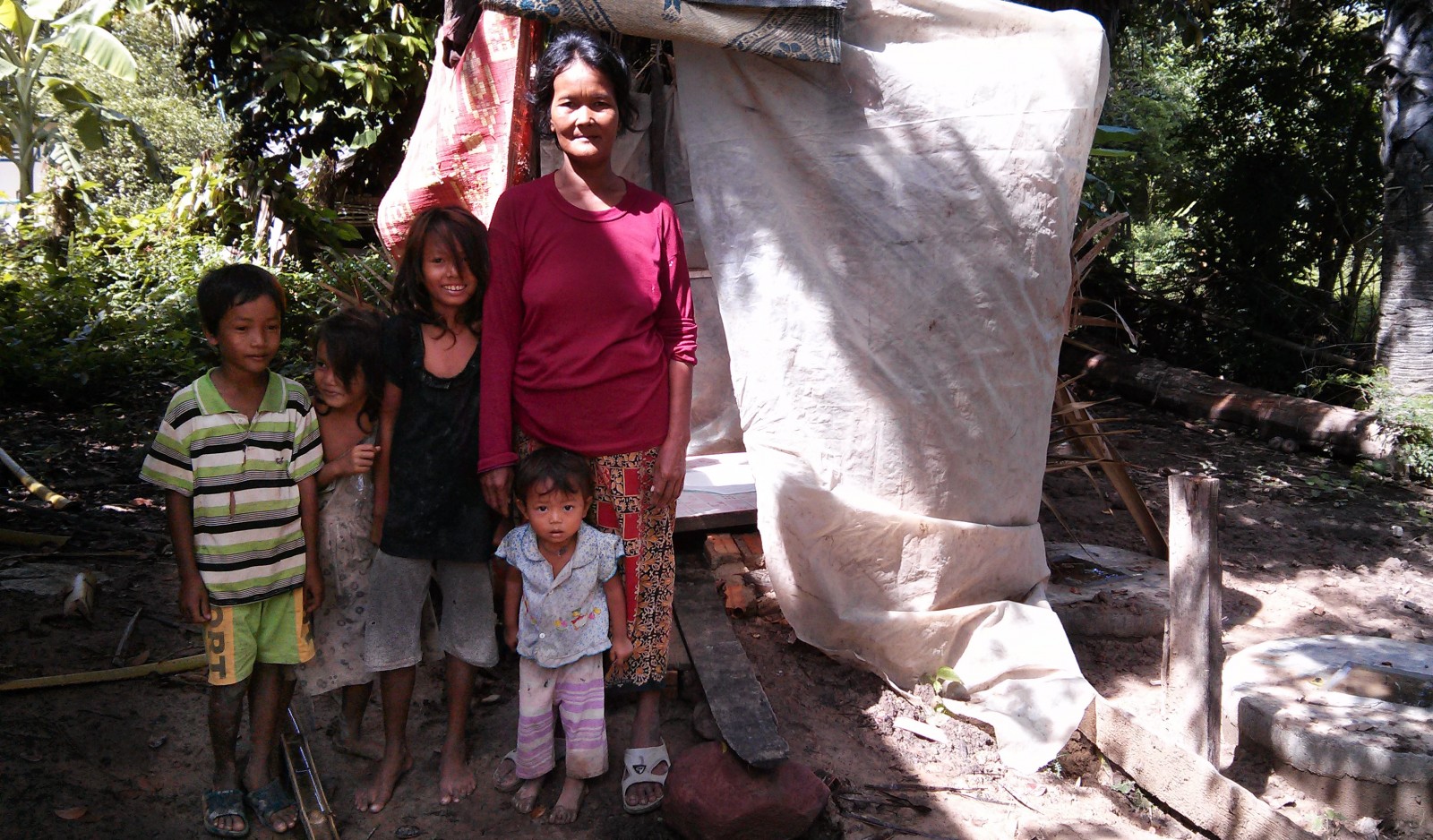RACHA began the first implementation stages of the CHOBA, CHOBA (Community Health Output Based Aid ) project in the Svay Donkeo, Rumlech, and Kampong Kdey communes of Pursat province in June and July. CHOBA's goal is to help mobilize communities to improve their hygiene and sanitation practices. Community Sanitation Promoters, trained by RACHA, facilitated village meetings to help villagers draw linkages between poor hygiene/sanitation behavior and diarrheal illnesses which create greater economic burdens for the household . Community members were surprised to discover how much money they lost each year from poor sanitation behavior resulting from a lack of latrines. This information catalyzed villagers to take action for their family's and community's health by participating in CHOBA. RACHA staff was soon met with eager families ready to participate in this new project; a solution which not only improves health, but also buffers the economic burden associated with diseases linked to less hygienic behaviors.

Sng Oum stands with four of her grandchildren in front of her newly built, fully functional latrine in Thmei village, Pursat province.
Sng Oun, 50, along with her children and grandchildren, make up a family of twelve. They live in a modest ground level dwelling in Thmei village in the Svay Donkeo commune. The government classifies her as ID Poor 1, meaning that she lives at the lowest level of poverty in Cambodia, and spends most of her time looking after her grandchildren as their parents work in Thailand in order to send financial support to the family. Sng Oun attended the first CHOBA village meeting along with her community members. She learned how diseases are transmitted through poor sanitation and how this leads to chronic health problems such as diarrhea and other waterborne illnesses; problems she has seen firsthand among her family members. She knew that better sanitation infrastructure and practices would benefit the health and well-being of her family. After the meeting she immediately signed up for a CHOBA latrine. Her next step was to figure out how she would finance building this latrine.
And so she called upon her local community and asked a trusted friend for a loan. "My friend agreed to loan me money without interest to build this latrine because he knows we are poor and this would really help our family." Part of the CHOBA project requires participating families to pay the initial $50 USD to install the latrine in order to receive a rebate of $18 once CHOBA staff verify the installation and use.
As the head of a household, Sng Oum says, "The village meeting made me realized I could make my life and my family's life easier and hopefully everybody in my family will get sick less often."
Once Sng Oum made her initial payment with the help of the loan, a RACHA contracted-supplier delivered and installed the latrine within a few weeks' time. RACHA encourages families to build a simple, functional superstructure for the latrine, with the option of upgrading the superstructure when they can afford it. In order to receive the full rebate, RACHA requires families to provide a simple hand washing station equipped with soap and water in the latrine to instill and reinforce hygienic practices.
The latrine was ready for Sng Oum's family in two weeks. Before they had the latrine, her family would "go to the rice fields and dig a hole," and they were always nervous that "someone would see them going." Similar to many women in developing countries, security during open defecation is a real danger in Cambodia, especially for younger females.
Now, after 10 days of using the new latrine, she already sees a difference. "I am very happy that I have a latrine; I don’t have to go far away to go to the bathroom, and I feel safe".
In addition, the latrine eliminated the "bad smell" around her house from open defecation and her family has not experienced any bouts of diarrhea since the installation. Hopefully with continued hygiene and sanitation practices, diarrhea will be a concern of the past.
Sng Oum was determined to improve her family's health, and through her perseverance and with the help of her community, she was able to take an important step in doing so. RACHA is excited to welcome many more families like Sng Oum's as participants in the CHOBA project.
 : +855 23 213 724 | +855 23 726 257
: +855 23 213 724 | +855 23 726 257 : office@racha.org.kh
: office@racha.org.kh













